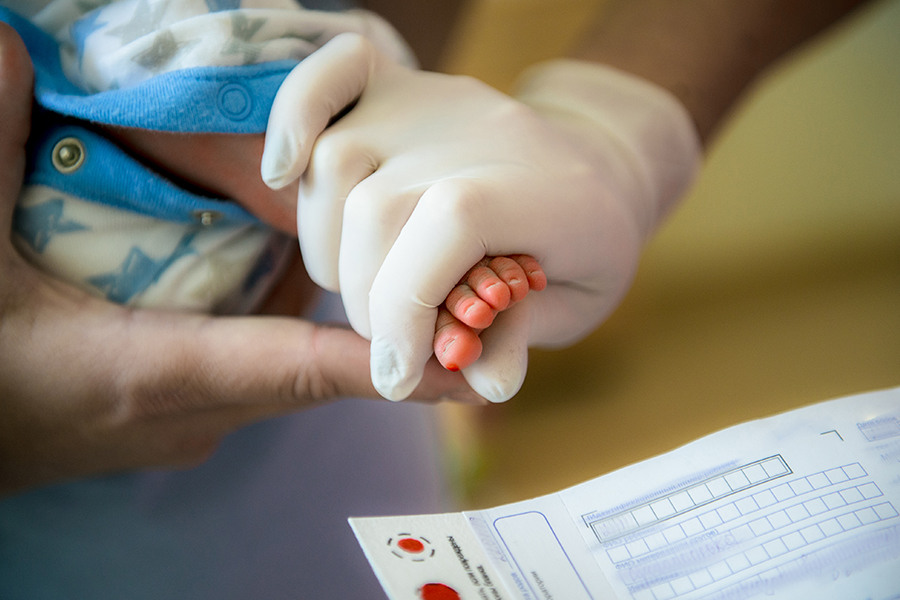Genetics Experts Support Adding Hundreds of Treatable Rare Diseases to Newborn Screening
May 9, 2023
In a newly released study, nearly nine of 10 experts on rare diseases agreed that sequencing healthy newborns’ DNA to reveal treatable genetic disorders should be available for all infants. At least half of experts also endorsed testing for more than 400 genes as part of such newborn genomic screens. These NCATS-supported study results might help make DNA testing a common part of newborn screening, potentially allowing lifesaving treatments to be delivered sooner to more babies who need them.
A team led by Harvard Medical School researchers surveyed 238 medical geneticists and other experts on rare diseases. They gauged support for newborn genome screening and asked which of 651 genes linked to disorders should be included in genomic tests.
Each U.S. state requires that newborns be screened for up to 60 rare but serious health conditions, most of which can be treated. While newborn screening requirements vary by state, DNA screening is not required. A growing number of drugs and gene-based therapies treat genetic disorders, and newborn DNA sequencing could catch those disorders sooner.
Among the survey’s 238 respondents, 88% agreed that DNA testing for treatable disorders, each caused by a single faulty gene, should be available for all newborns. Nearly 60% agreed that such testing should include genes associated with treatable conditions, even when those genes have a low chance of causing disease. More than a third agreed that treatable genetic conditions that do not show up until adulthood should be part of a newborn genomic screen to inform parents who also might develop the condition. And 28% agreed that conditions without treatments or management guidelines should be part of newborn DNA sequencing.
The experts also broadly agreed on which conditions should be included in newborn DNA testing. Of the 651 genes listed in the survey, testing for 432 was backed by at least 50% of the experts. Testing for 42 of the 651 genes was endorsed by 80% of experts. Of those 42 genes, 60% are linked to metabolic disorders. Most of the rest are tied to endocrinologic, neurologic, hematologic and gastroenterologic disorders, as well as hereditary cancers.
“This kind of consensus suggests that the field is coalescing around some basic agreements that will allow us to implement newborn sequencing much sooner than we might have anticipated,” said Robert Green, M.D., M.P.H., professor of medicine at Harvard Medical School and one of the study’s lead authors.
“The push to include genome sequencing in newborn screening is the realization of the effort that led to sequencing the human genome more than 20 years ago,” said Michael Kurilla, M.D., Ph.D., director of NCATS’ Division of Clinical Innovation. “To be able to identify hundreds of addressable future medical conditions with a single analysis, rather than multiple biochemical assays, is an example of 21st-century medicine,” he added.
Learn more about the study findings in JAMA Network Open.



